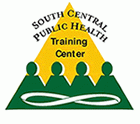
Lessons From the Storm: Crisis and Collaboration
Course Description:
The lessons learned, and lessons still being taught, from Hurricane Katrina can assist all healthcare and family assistance providers in providing for future disasters. This session was conducted by Harold Suire, a consultant with over 20 years experience in the state policy arena, who was called upon by the state of Louisiana in the aftermath of Katrina to coordinate the myriad of groups and foundations from throughout the nation and world. He shared his on-the-ground observations of collaboration and challenges in the vortex of one of the greatest natural disasters in the United States. We learned how lives were, and still are, in jeopardy while leaders, agencies, and groups fought and acted on policy, credit, regulations, funds, and turf. We also learned about the resiliency of providers and citizens and the power of collaboration and action for the greater good.
Note: This course was originally delivered as a satellite broadcast.
Target Audience
Academic Faculty/Staff, Federal Government Employees, State Government Employees, Local Government Employees, Non-Government Employees and Students
Learning Objectives
- Describe the leadership skill set most useful in a major crisis
- Identify the benefits of practical information sharing and use of data before and after a major crisis
- Identify people and groups within a region or national scene that are most effective at managing resources and information and serving clients
- Describe the major types of communication that fail and succeed within an interagency and provider network during a crisis
- Identify future critical roles for public health practice in a major crisis
- Identify several post-crisis factors that affect the health of citizens within and surrounding an impacted area, with an emphasis on mental health implication
Instructor:

Harold Suire
Licensed Emergenetics Specialist
Education, Research, and Information Services, Inc.
Baton Rouge, Louisiana
Harold is Vice President of Education for Emergenetics International and in this role is responsible for marketing and implementing the STEP (Student/Teacher Emergenetics Profile®) program in schools throughout the United States. Harold is also one of three International Emergenetics Master Trainers.
Additionally, Harold is the President and CEO of Education, Research and Information Services, Inc., a private company located in Baton Rouge, Louisiana and also serves as President of the J. Bennett Johnston Science Foundation. He has received the National Distinguished Leadership Award and was a Volunteer Activist of the Year in Baton Rouge. In 1996, Harold was named Outstanding Alumni of the University of Louisiana at Lafayette.
Harold has consulted with Fortune 500 companies, non-profit organizations, and economic development groups throughout the U.S. Harold serves as a citizen member with Governors from the South on the Southern Growth Policies Board in Chapel Hill, North Carolina and has served on the group's Executive Committee and as its Treasurer. He is currently on the board of directors and treasurer of the University of Louisiana System Foundation. He has been instrumental in establishing community leadership
Available Credit
- 2.00 Participation/CETulane Professional and Continuing Education (PaCE) awards 2.00 hour(s) of credit for completing Lessons From the Storm: Crisis and Collaboration
Price
Required Hardware/software
System Settings
This course is designed to work most effectively if your computer and internet connection meet certain minimal requirements. This course can be accessed using a Windows 10 PC or a Mac with High Sierra1, Mojave, or Catalina. Pop-up blockers should be disabled when viewing the course. Internet Explorer 11 (for Windows 10), or the current version of Google Chrome, Mozilla Firefox, or Apple Safari (for Windows 10 and or Mac) is required. Many of our courses require Java and JavaScript enabled.
Links to External Websites
Links to websites outside this course will open in a new window or tab. Some browsers may minimize the course window. If this occurs, maximize the course window to return to the course.
Adobe Acrobat Reader (for desktops and laptops)
Adobe Acrobat Reader is required to access some documents in this course. If you need to download a free copy of Acrobat Reader, click here.
Internet Connection Speed
A minimum download speed of 1.5 Mbps is recommended for an optimal experience, which is commonly the speed associated with a basic DSL or a cellular/satellite connection. A faster connection, such as cable or fiber service, with further enhance your online experience. A Wi-Fi connection is generally acceptable, but it is dependent upon one of the two services mentioned above. You can check your internet connection speed at http://www.speedtest.net/.

 Facebook
Facebook X
X LinkedIn
LinkedIn Forward
Forward